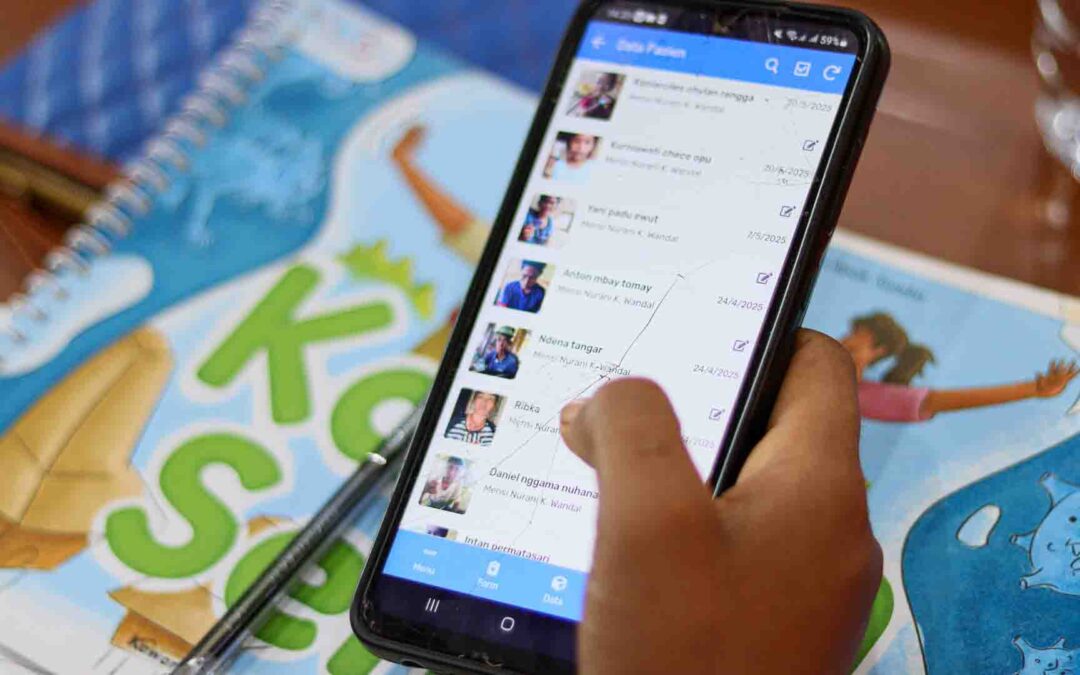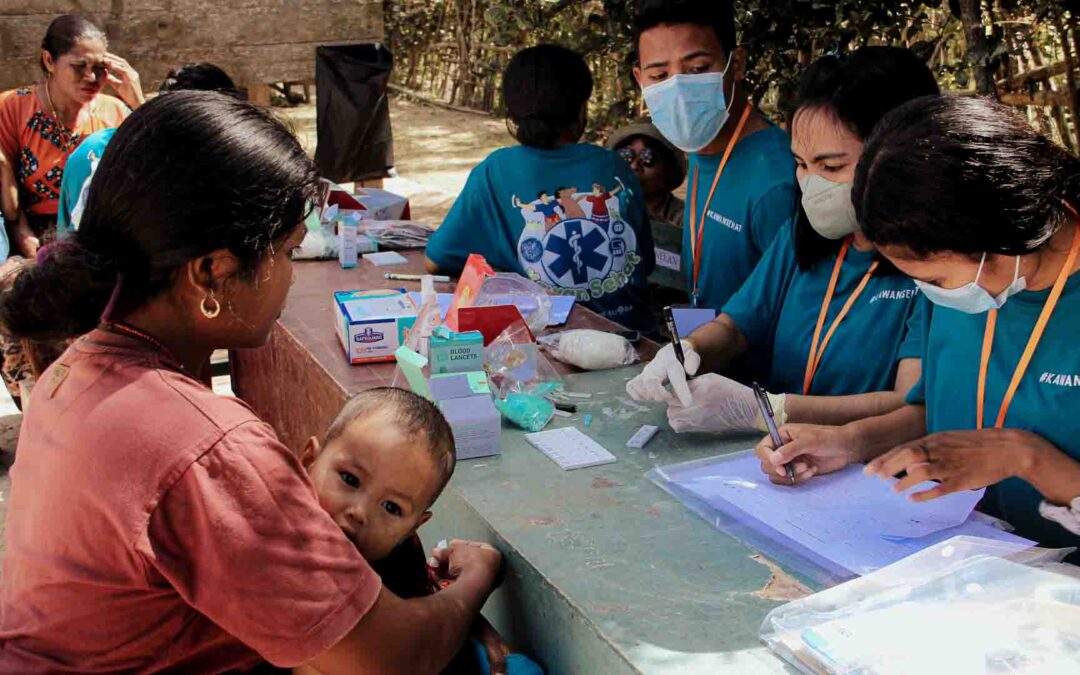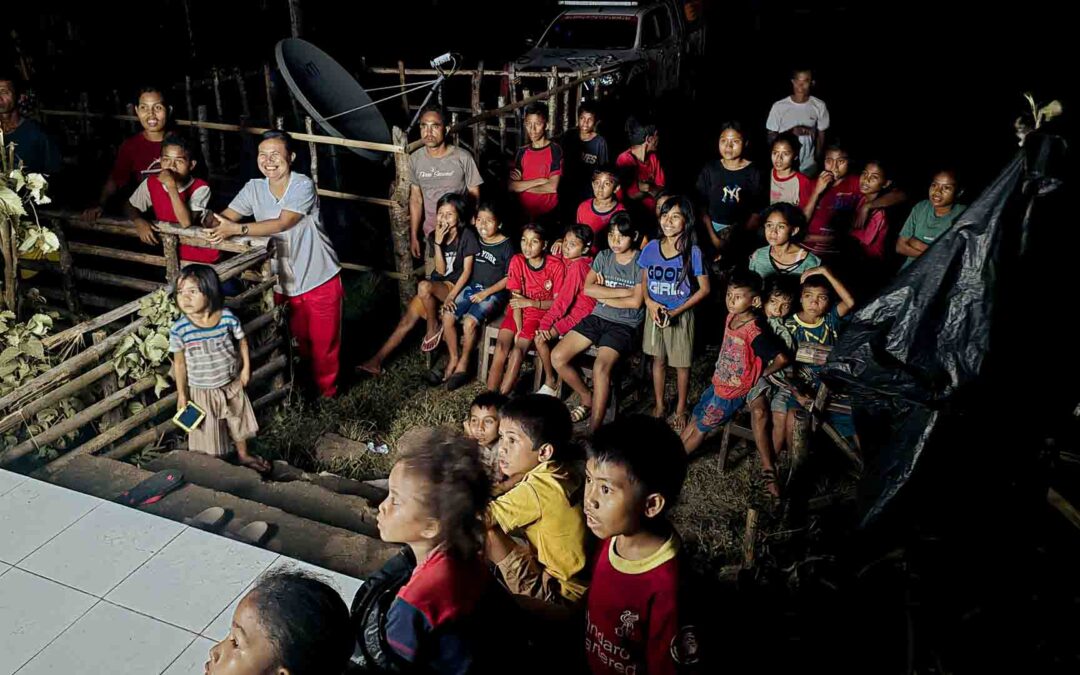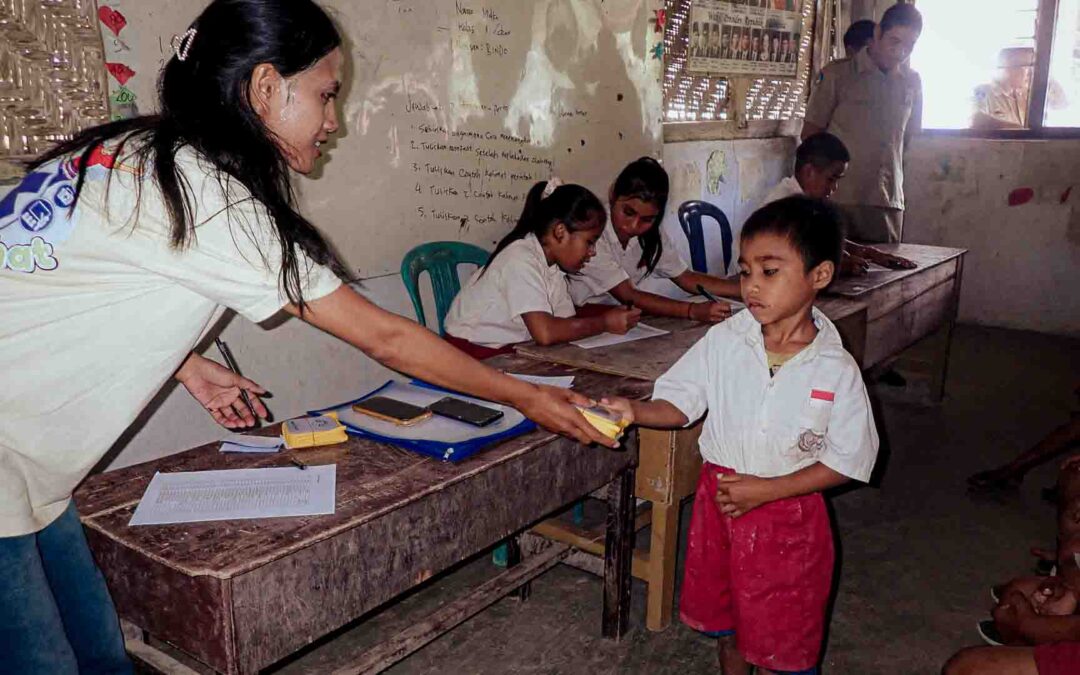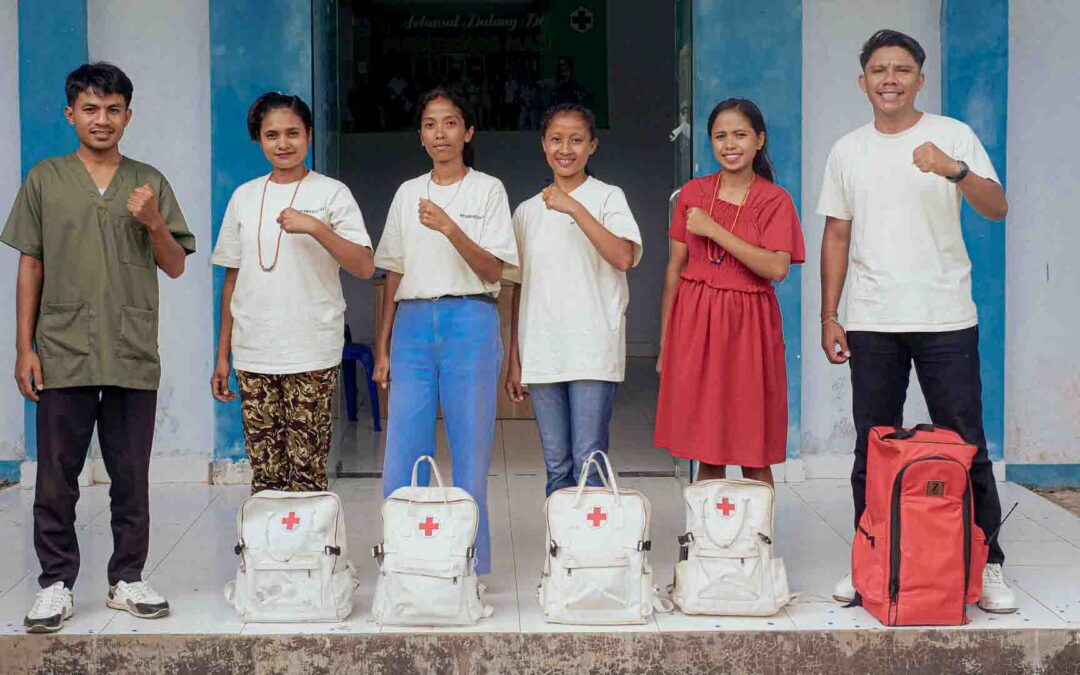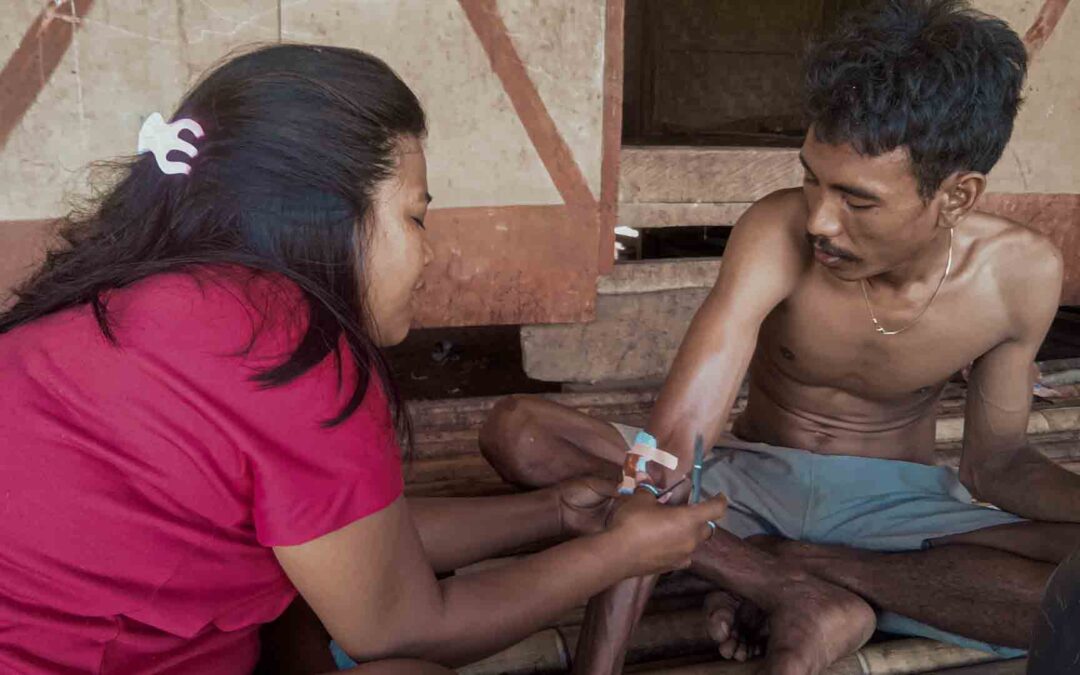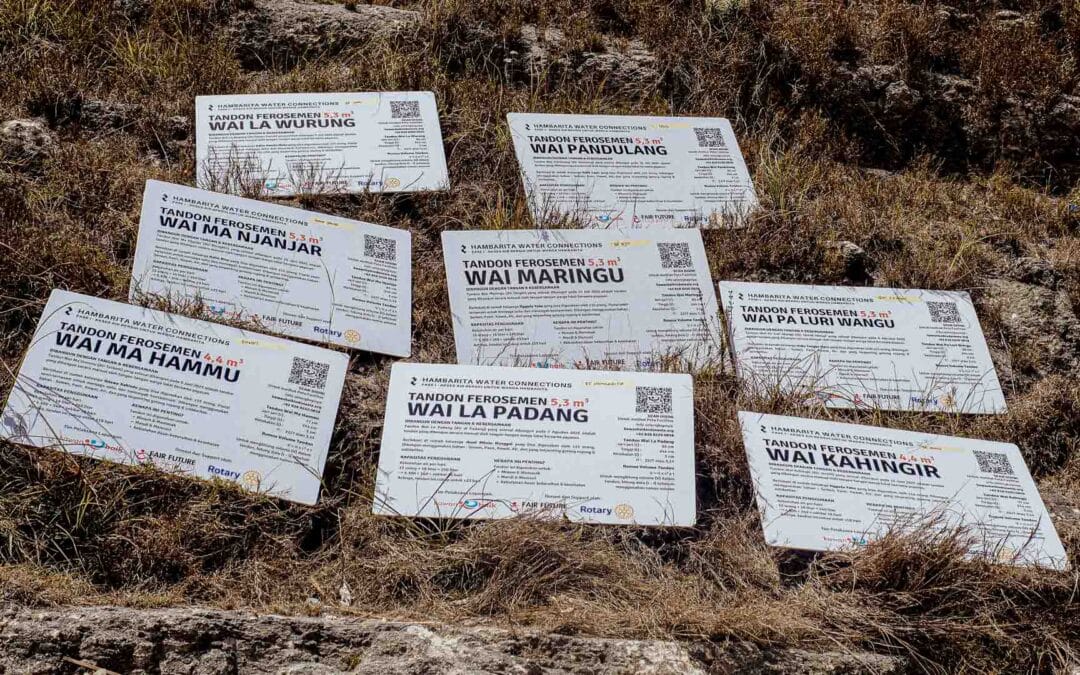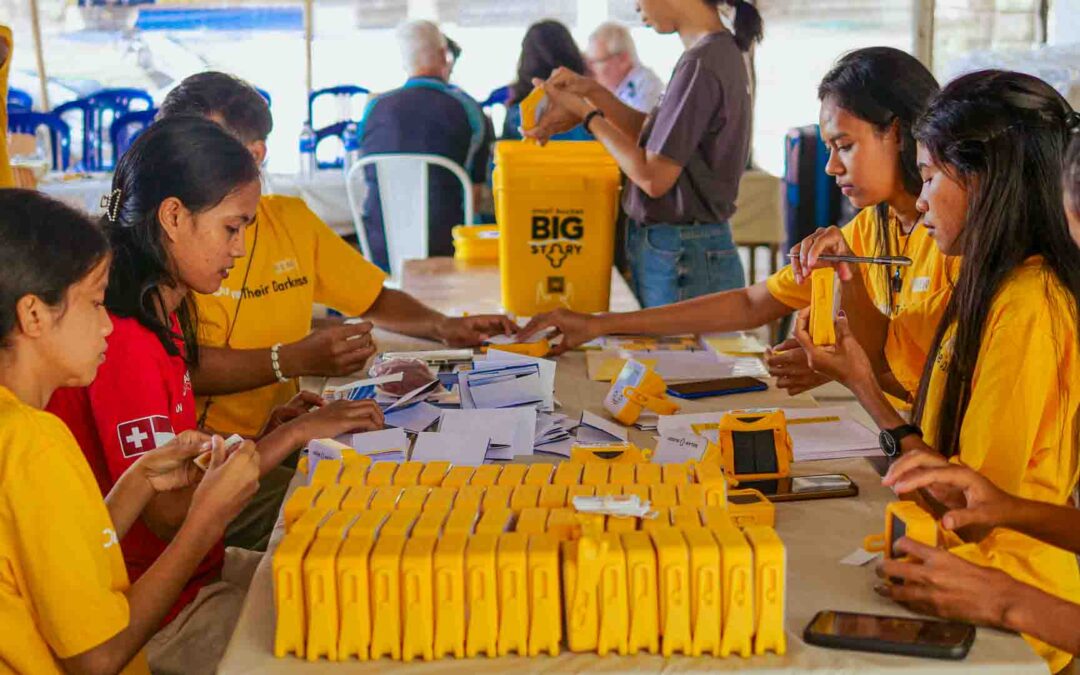In the ultra-rurality of eastern Sumba, access to water is a daily battle. Fair Future’s Water Connections project is changing this by installing drinking water points near homes, reducing health risks from contaminated water. This initiative not only improves health and education but also stimulates economic growth.
This Image is in 1920×1080 format. Click on it to enlarge it and see it in full size.
This new "Picture of the Day" shows you Pak Kudu Huring, who leaves early in the morning to fetch a few litres of water from his house, which is too far from his village of Laindatang. He carries with him nearly ten Jerry cans on his shoulder; he walks quickly, and it isn't easy to follow him. He makes this trip once or twice a day. He will have to walk several hours to return home with water to drink, eat, and water the animals...
Finding water is a big challenge in extremely rural eastern Sumba villages like Laindatang, finding clean water is a daily challenge. Residents have to venture miles to collect it and often find themselves with resources unfit for consumption. This situation further exposes their society to serious health risks, such as Malaria, Polio, diarrheal diseases, typhoid fever, dysenteric infections, and parasitic diseases, often attributed to the consumption of contaminated water, which aggravates cases of malnutrition while increasing infant mortality rates.
The Water Connections project in Laindatang, which Fair Future initiated, is appropriate for this situation. Drinking water points have been installed near homes, considerably reducing the distances travelled to fetch water. We guarantee a constant supply of clean water through deep drilling and installation of pumps, tanks, and filtration systems, ensuring high-quality standards are met.
In addition to providing water, our project also organizes educational sessions on hygiene and water management that aim to raise awareness of sanitation practices among residents. The program emphasizes the importance of washing hands with soap, saving water efficiently, and maintaining good personal hygiene to prevent infections – all of which villagers learn during the course of these information sessions.
The effects of Water Connections are already evident, as the reduction in illnesses associated with contaminated water improves the community's overall well-being. With healthier children attending school more regularly, their educational opportunities and future prospects become more promising. Additionally, adults with fewer health problems tend to be more productive and help drive economic growth in the village.
In Laindatang, there is constant change. The female population, who generally bear the burden of water collection tasks, now have more time to devote to other educational or productive activities. With access to uncontaminated watering systems and thriving vegetable gardens in communal gardens, families can supplement their income while having more excellent nutritional resources within their reach.
Our efforts to address the water crisis in Laindatang go far beyond providing clean water. We are making significant progress toward improving health care and education outcomes and spurring economic growth in local communities.
Through this project, we aim to give villagers long-term solutions that will enable them to create a better future for themselves and their families. Our unwavering commitment to transforming disadvantaged regions is reflected in our commitment to ensuring access to vital resources such as clean water.
Fair Future Foundation medico-social camp in East Sumba – Rumah Kambera, Lambanapu – The 15th of July 2024.
Thank you for your interest and support, we love you.




